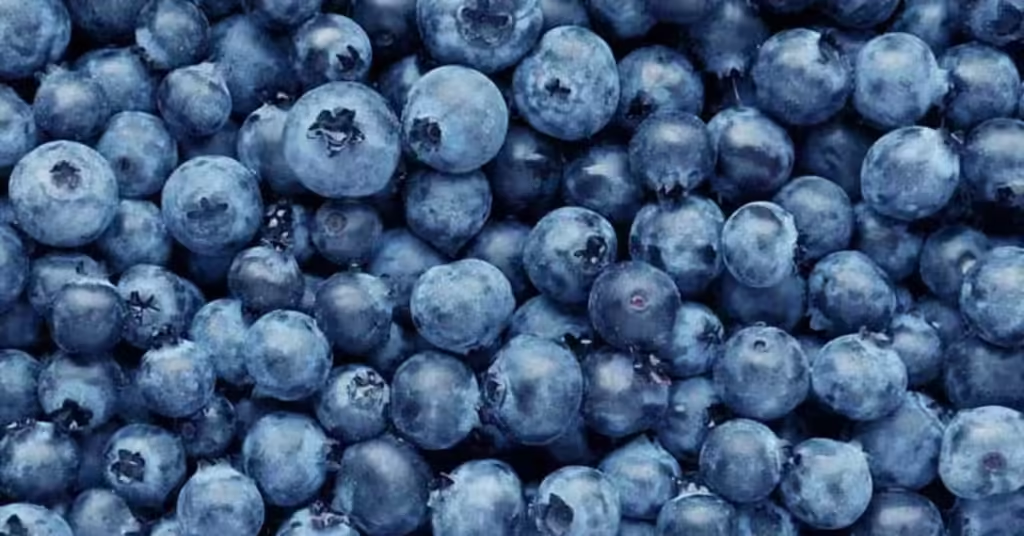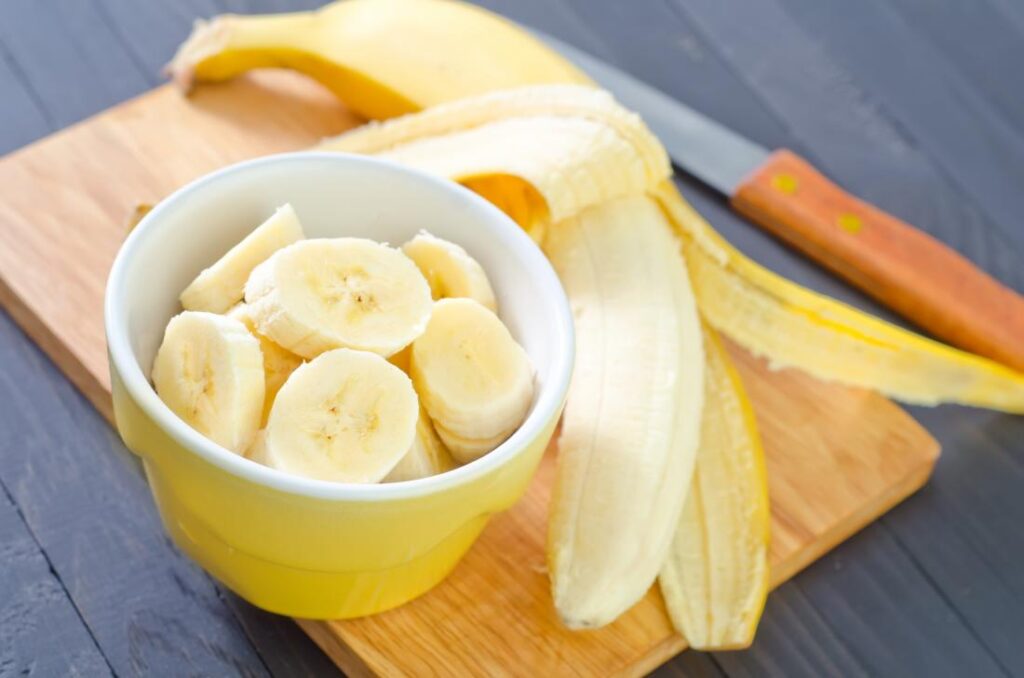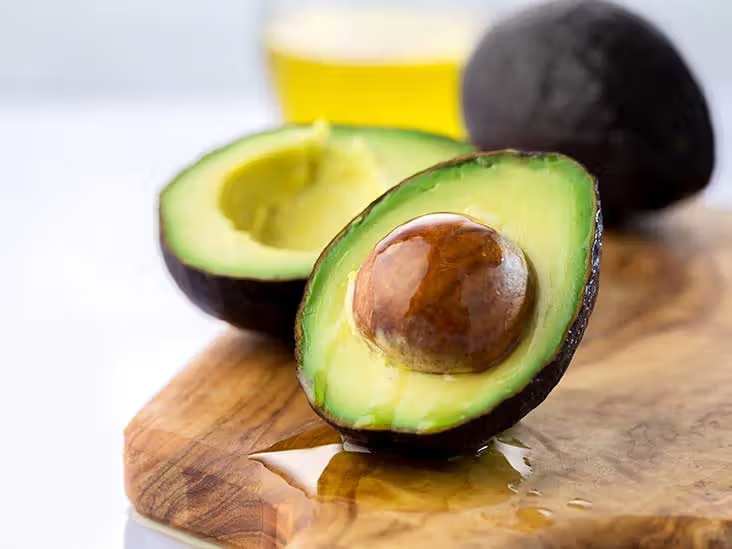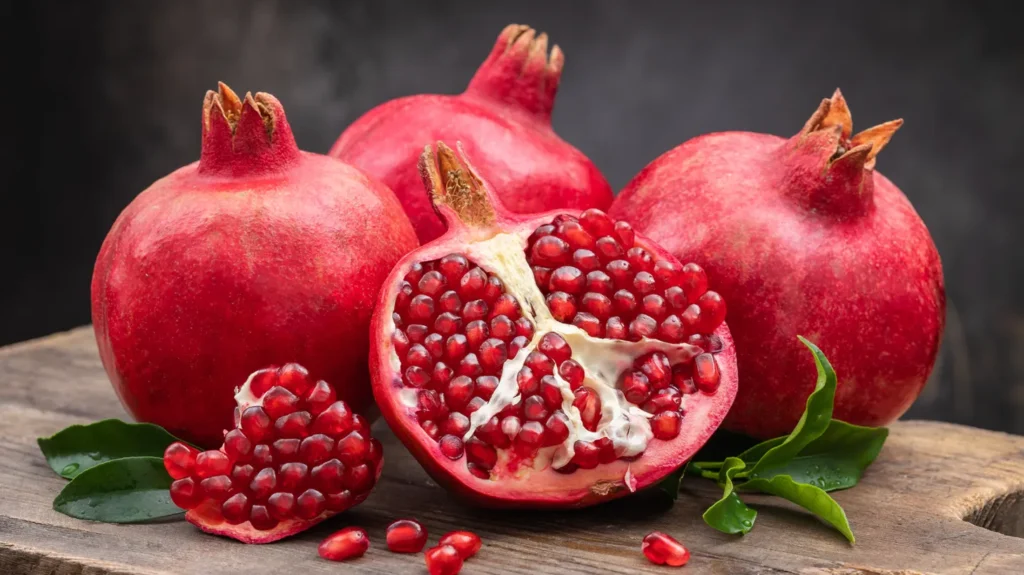Stroke is a serious medical condition that demands prompt medical attention along with a meticulous and organized recovery plan. Understanding the importance of nutrition in both recovery and prevention is crucial. Some fruits are packed with essential nutrients that can greatly benefit brain health, reduce inflammation, and promote cardiovascular well-being. This comprehensive guide delves into 5 important fruits for stroke recovery and prevention. It provides detailed information on their numerous benefits and offers suggestions on how to easily incorporate them into a daily diet.
1. Blueberries

Blueberries are frequently praised for their abundance of antioxidants and the various health advantages they offer. They have proven to be highly advantageous for individuals recovering from strokes and those looking to prevent them.
Antioxidant Powerhouse
- Blueberries are rich in anthocyanins, which are potent antioxidants that can effectively combat oxidative stress and inflammation in the brain. These potent compounds protect brain cells from harmful molecules, which can exacerbate stroke-related brain injuries.
- Blueberries are packed with vitamin C, which is known for its immune-boosting properties and ability to help repair damaged tissues.
- Enjoying a cup of blueberries can contribute a substantial amount towards meeting your daily vitamin C needs.
Benefits for the Mind
- Enhancing Memory: Research has indicated that incorporating blueberries into one’s diet can enhance memory and cognitive function, which may be negatively affected following a stroke. – Blueberries contain flavonoids that improve communication between brain cells and aid in the development of new neural connections.
Adding Blueberries to Your Daily Meals
- Smoothies: Enhance your morning smoothie with a generous portion of blueberries to kickstart your day with a healthy and delightful boost.
- Pair them with other fruits, such as bananas and spinach, to create a drink that is rich in nutrients.
- Snacks and Desserts: Indulge in the delightful taste of fresh blueberries as a snack, or enhance the flavors of your yogurt, oatmeal, or salads by incorporating these juicy berries. Blueberries are a fantastic addition to baked goods, giving muffins, pancakes, and desserts a nutritious boost.
2. Oranges

Oranges are not just tasty, but they also contain vital nutrients that promote heart and brain health. This makes them a great fruit for preventing and recovering from strokes.
Rich in Vitamin C
- Boosting Your Immune System and Promoting Tissue Healing:
- Oranges are an excellent source of vitamin C, which plays a vital role in supporting the immune system and aiding in the recovery of damaged tissues caused by a stroke.
- Vitamin C also functions as an antioxidant, shielding brain cells from additional harm.
The Role of Potassium in Regulating Blood Pressure
- Promoting Heart Health: Oranges contain a significant amount of potassium, which plays a crucial role in maintaining healthy blood pressure levels and minimizing the likelihood of cardiovascular problems that may result in strokes.
- It is crucial to prioritize the maintenance of healthy blood pressure in order to reduce the risk of future strokes.
Boosting Brain Function with Folate
- Exploring neurological health: the ancestry of brain cells, promoting optimal cognitive function.
Adding Oranges to Your Diet
- Refreshing Beverage: Begin your day with a glass of freshly squeezed orange juice to enhance your intake of vitamin C and other vital nutrients.
- Make sure the juice is completely pure, with no added sugars, to get the most out of its health benefits.
- Snacks and Salads: Indulge in the delightful taste of oranges as a refreshing snack, or enhance the flavor and nutritional value of your salads by incorporating juicy orange segments.
- Incorporate orange zest and juice into dressings and marinades for a delightful burst of citrus flavor.
3. Bananas

Bananas are a versatile and widely available fruit that provide numerous health benefits, especially for stroke recovery and prevention.
Managing Blood Pressure with Potassium
- Managing Blood Pressure: Bananas are a great way to maintain healthy blood pressure levels. They contain potassium, which helps to balance the effects of sodium in the body.
- Eating foods that are high in potassium, such as bananas, can help lower the chances of developing hypertension, which is a significant contributor to strokes.
Enhancing Brain Health with Vitamin B6
- Boosting Neurotransmitter Production: Bananas contain a significant amount of vitamin B6, a crucial nutrient for the production of important neurotransmitters like serotonin and dopamine. These neurotransmitters are essential for maintaining a balanced mood and optimal cognitive function, which is particularly important for promoting brain health following a stroke.
Energy Boost
- Energizing Snack Option: Bananas offer a convenient way to boost your energy levels during stroke recovery, thanks to their natural sugars and fiber content. They make for a perfect snack choice to keep you energized throughout the day. – Bananas are great for digestion and can help keep your blood sugar levels stable.
Adding Bananas to Your Daily Meals
- Smoothies: Incorporate bananas into your smoothies to achieve a velvety consistency and a delightful touch of natural sweetness. Incorporate them with a variety of fruits and greens to create a wholesome mixture.
- Freezing bananas and blending them creates a delicious ice cream alternative that is both healthy and dairy-free.
- Snacks and Breakfast: Indulge in the delightful taste of bananas as a quick and easy snack, or enhance your morning meal by adding sliced bananas to your cereal, oatmeal, or yogurt for a nourishing breakfast option.
- Incorporate mashed bananas into your baking recipes for a healthier alternative to added sugars.
4. Avocados

Avocados stand out from other fruits because of their rich concentration of beneficial fats, providing valuable advantages for stroke recovery and cardiovascular well-being.
Nourishing Fats for Optimal Brain Function
- Brain Health Benefits: Avocados are packed with monounsaturated fats that have been shown to support brain health. These fats help reduce inflammation and promote healthy blood flow, which is essential for optimal brain function. These fats have the added benefit of reducing LDL cholesterol levels and boosting HDL cholesterol, which can contribute to better heart health.
The Importance of Potassium and Fiber
- Blood Pressure and Digestion: Avocados contain a good amount of potassium, which plays a role in regulating blood pressure and lowering the risk of strokes. The fiber found in avocados can be beneficial for digestion and maintaining stable blood sugar levels, which can be important for overall health while recovering from a stroke.
Antioxidants and Vitamins
- Avocados are a great source of vitamin E, which acts as an antioxidant to safeguard brain cells against oxidative stress. In addition to their immune-boosting and tissue-repairing properties, these fruits are also rich in vitamin C.
Adding Avocados to Your Daily Meals
- Salads and Sandwiches: Enhance the texture and nutritional value of your salads and sandwiches by incorporating sliced or mashed avocado.
- Incorporate avocado into your meals by pairing it with a variety of vegetables and lean proteins to create a well-rounded and nutritious dish.
- Smoothies and Spreads:
- Incorporate avocados into smoothies to create a luscious, velvety consistency and enhance their nutritional value.
- Incorporate mashed avocado into your meals by using it as a spread on toast or as a foundation for nutritious dips such as guacamole.
5. Pomegranates

Pomegranates are widely recognized for their striking color and powerful health advantages, making them a great option for individuals looking to recover from or prevent strokes.
Full of antioxidants
- Pomegranates contain powerful antioxidants that can reduce inflammation and protect brain cells from damage. In addition to their numerous health benefits, antioxidants also play a crucial role in supporting cardiovascular health. They work by enhancing blood flow and minimizing oxidative stress, which is essential for maintaining a healthy heart.
Benefits of Reducing Inflammation
- Addressing Inflammation: Chronic inflammation poses a risk for strokes. Pomegranates possess potent anti-inflammatory properties that can aid in reducing this risk.
- Consistently incorporating pomegranate juice or seeds into your diet can help decrease indicators of inflammation within the body.
Cardiovascular Benefits
- Enhancing Heart Health: Pomegranates contribute to the reduction of blood pressure and improvement of cholesterol levels, thereby decreasing the likelihood of heart disease and subsequent strokes.
- The polyphenols found in the fruit can have a positive impact on the endothelium, which is the lining of blood vessels. This can lead to improved cardiovascular health.
Adding Pomegranates to Your Diet
- Juice and Smoothies: Enjoy a refreshing glass of fresh pomegranate juice every day to experience its amazing cardiovascular and anti-inflammatory benefits.
- Incorporate pomegranate seeds into your smoothies to elevate the taste and infuse them with a powerful dose of antioxidants.
- Snacks and Salads: Enhance the texture and nutritional value of your salads, yogurt, or oatmeal by adding a sprinkle of pomegranate seeds.
- Indulge in the seeds as a delightful treat by themselves or alongside a medley of fruits and nuts.
Final Thoughts
Adding these five essential fruits—blueberries, oranges, bananas, avocados, and pomegranates—to your diet can greatly aid in stroke recovery and reduce the risk of future strokes. These fruits are packed with vital nutrients, powerful antioxidants, and beneficial fats that support brain health, combat inflammation, and enhance cardiovascular function. By incorporating these fruits into your daily meals, you can improve your overall health and well-being, helping with recovery and lowering the chances of experiencing another stroke. It is important to seek guidance from healthcare professionals for personalized dietary advice and stroke management plans.